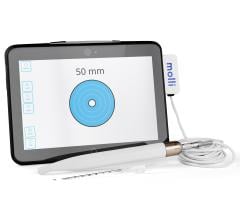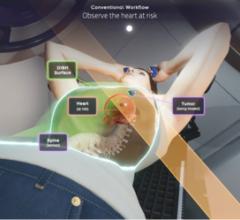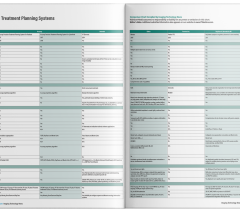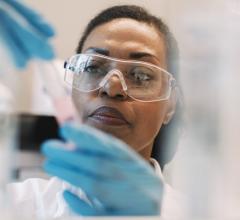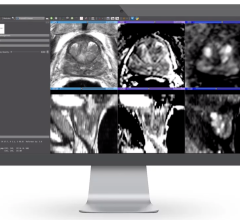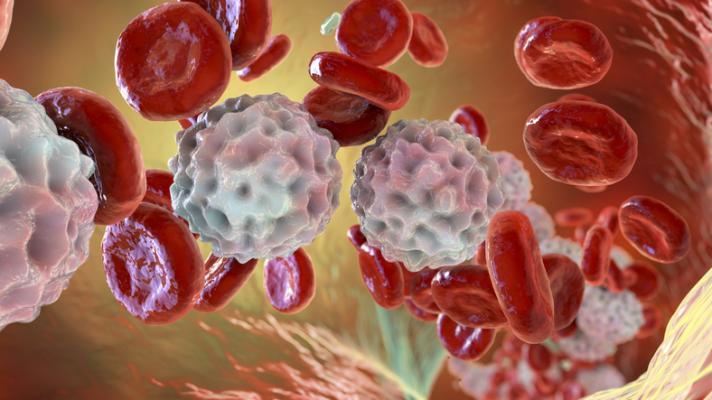
Getty Images
March 22, 2022 — Analyzing one of the largest databases of patients with cancer andCOVID-19with machine learning models, researchers fromLawrence Livermore National Laboratoryand theUniversity of California, San Franciscofound previously unreported links between a rare type of cancer—as well as two cancer treatment-related drugs—and an increased risk of hospitalization from COVID-19. The findings appear in the journalCancer Medicine.
If a cancer patient tests positive for COVID-19, are they more likely to become hospitalized from the disease?
That depends on certain risk factors, according to a new study by researchers at Lawrence Livermore National Laboratory (LLNL) and the University of California, San Francisco (UCSF), who looked to identify cancer-related risks for poor outcomes from COVID-19. Analyzing one of the largest databases of patients with cancer and COVID-19, the team found previously unreported links between a rare type of cancer—as well as two cancer treatment-related drugs—and an increased risk of hospitalization from COVID-19. The findingsappearin the journalCancer Medicine.
“There is still a lot of fear of what the impacts are to the risk of patients withcancer and COVID-19LLNL首席研究员普利亚迪普·雷(Priyadip Ray)说。“这项研究的关键是数据集的强度,它使我们能够研究这个利基领域,并且足够大,可以找到一些统计上显著的癌症相关和药物相关的观点。对医生来说,这些都是有可能采取行动的项目,让他们的病人更加意识到,采取更多的预防措施,甚至考虑替代治疗。”
Using a logistical regression approach, the team examined de-identified Electronic Health Record (EHR) data from theUC Health COVID Research Data Set(UC CORDS) on nearly a half-million patients who underwent COVID-19 testing at all 17 UC-affiliated hospitals. The dataset included nearly 50,000 patients with cancer—more than 17,000 of whom had also tested positive for COVID—and contained information on patient demographics, comorbidities, lab work, cancer types and various cancer therapies.
The researchers examined a range of factors and disease outcomes, including hospitalization, ventilation and death, and identified a higher risk from COVID-19 due to a specific group of rarer blood cancers and two medications used to treat cancer — venetoclax (used to treat leukemia) and methotrexate (an immune suppressant used in chemotherapy).
“我们发现,患有骨髓增殖性肿瘤的患者或接受特定抗癌治疗的患者在感染SARS-CoV-2后住院的可能性更大,”研究人员Daniel Kwon说,他是加州大学旧金山分校医学系血液学/肿瘤学部门的临床助理教授。“据我们所知,这是第一个确定这些潜在风险因素的研究。需要对这些人群进行进一步的研究。"
LLNL computer scientist Jose Cadena worked with co-authors Sam Nguyen and former Academic Graduate Appointee at LLNL Ryan Chan (currently a Ph.D. student at Johns Hopkins University) on the software tools for extracting and analyzing the data stored in the UCSF system. He said having access to such a large database with detailed medical history for each patient was key to the study.
“It allows us to evaluate the potential risk of many different factors with some reasonable confidence that the findings are statistically significant and relevant to a population beyond the cohort understudy,” Cadena said. “One of the reasons I joined LLNL was to conduct research that could have a national or global impact. It would be great if our findings help physicians improve care for cancer patients with COVID.”
In addition to cancer-specific risks, the study examined if people with cancer have an increased risk of getting infected with COVID-19. In contrast with previous studies, the team found cancer patients among the UC cohort were less likely to contract COVID-19 than the general population, which they hypothesized could be related to patients with cancer being more likely to take precautions that decrease transmission (e.g., social distancing and mask-wearing), frequent testing practices and having lower thresholds for undergoing testing compared to patients with cancer in other regions.
Cadena said such counterintuitive findings highlight one of the challenges of using EHRs for modeling disease, where there are “numerous confounding factors that muddle the analysis and have to be accounted for.” Researchers said more investigation is needed to help explain and confirm the lower risk of COVID-19 test positivity in patients with cancer.
The team found additional risk factors for COVID-19 that have been previously reported, such as Asian and Hispanic/Latino ethnicities (which made up 36 percent of COVID-positive patients with cancer), and comorbidities like old age, coronary artery disease, chronic kidney disease, diabetes mellitus and chronic obstructive pulmonary disease, which were associated with increased risk of hospitalization and more severe disease.
The work is part of a pilot study, and researchers are pursuing external funding for further examination. Ray said the team would like to add time-varying, genomic and imaging data and apply more sophisticated AI and other tools to find better ways to treat patients and understand not only the mechanics of the disease, but how socio-economic factors such as income and insurance can play a role.
“All of us are very excited,” Ray said. “When you are doing research, you don’t always see things that are immediately translatable. The potential that you can immediately impact how you treat a disease, care for patients or give guidance to patients or clinicians in how they can manage their disease, is very satisfying.”
The Laboratory Directed Research and Development program funded the work. Co-authors included LLNL scientists Kwan Ho Ryan Chan, Braden Soper and Amy Gryshuk and UCSF Department of Medicine Assistant Professor Franklin Huang.
For more information:https://www.llnl.gov/
Related COVID Content:
COVID-19 Fallout May Lead to More Cancer Deaths
Kawasaki-like Inflammatory Disease Affects Children With COVID-19
FDA Adds Myocarditis Warning to COVID mRNA Vaccine Clinician Fact Sheets
CMS Now Requires COVID-19 Vaccinations for Healthcare Workers by January 4
Cardiac MRI of Myocarditis After COVID-19 Vaccination in Adolescents
Small Number of Patients Have Myocarditis-like Illness After COVID-19 Vaccination
Overview of Myocarditis Cases Caused by the COVID-19 Vaccine
Case Study Describes One of the First U.S. Cases of MIS-C
NIH-funded Project Wants to Identify Children at Risk for MIS-C From COVID-19

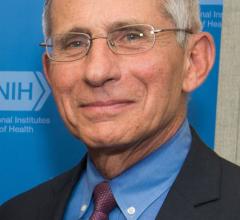
 August 22, 2022
August 22, 2022
